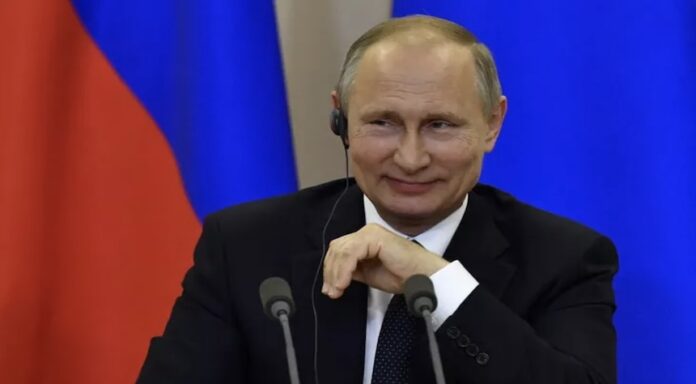NATO is advancing towards a war footing for a conflict in which precisely zero NATO members are involved.
Vladimir Putin’s invasion of Ukraine on a large scale has prompted NATO members to plan what was unthinkable after the Cold War ended–a direct war with Russia.
The former deputy Supreme Allied Commander Europe, Sir Richard Shirreff said that NATO is not prepared for war with Moscow. This was ahead of the summit of the EU in Vilnius (Lithuania) starting on the 11th of July, where countering Russia will top the agenda.
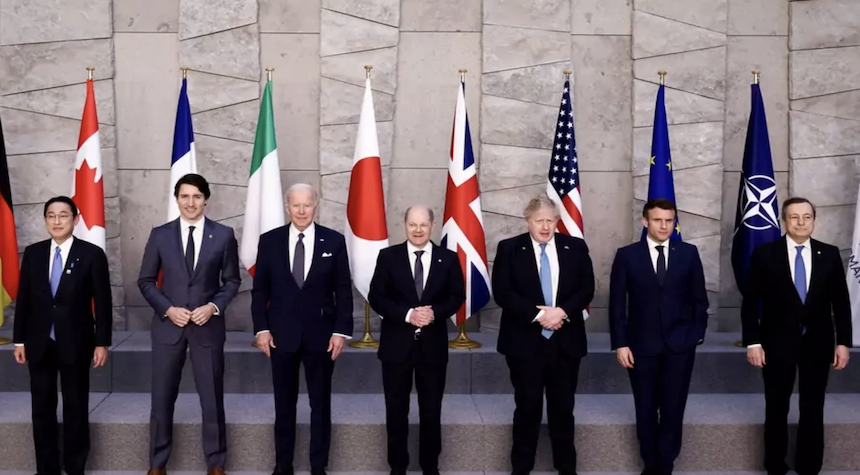
He told Newsweek that the alliance’s budgets were shrinking, but there are some exceptions. Poland is one of them.
“There’s a war in Eastern Europe,” Shirreff stated that it is a land and air war. You need to invest both in air and ground, but this has not been done. “At the Madrid Summit last year, (Alliance secretary general) Jens Stoltenberg said that NATO’s very high readiness forces would be increased to 300,000. That simply hasn’t happened.”
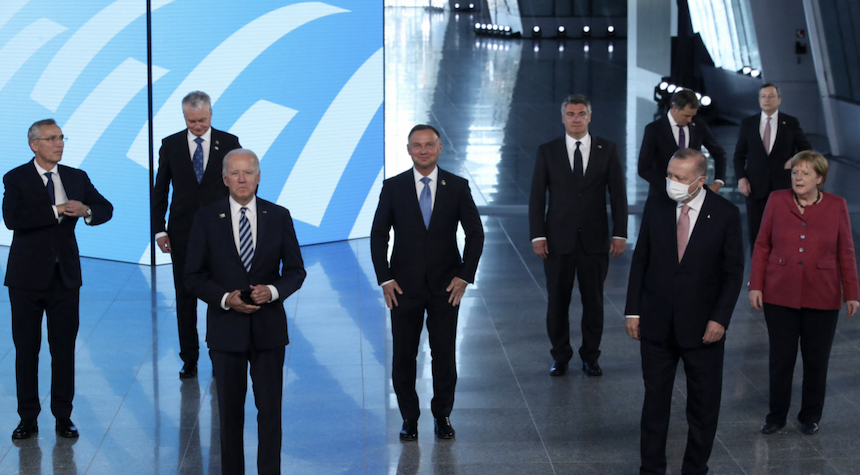
In 1990-1991, I myself was part of a major troop deployment. This little conflict was known as Operation Desert Storm and it was the largest deployment by the United States since the Second World War. We wiped out Saddam’s army, which was at the time the largest in the Middle East. In just 100 hours, coalition forces destroyed 3,000 enemy vehicles, 1,400 personnel carriers, and 2,200 pieces of artillery at a cost of less than 100 coalition KIA. To put it mildly: It was a breeze. Some of our forces took and some were kicked by them. I was working in a medical team, and the majority of casualties were Iraqis. There were also some civilians that got in the way.
We went home when the event was finished.
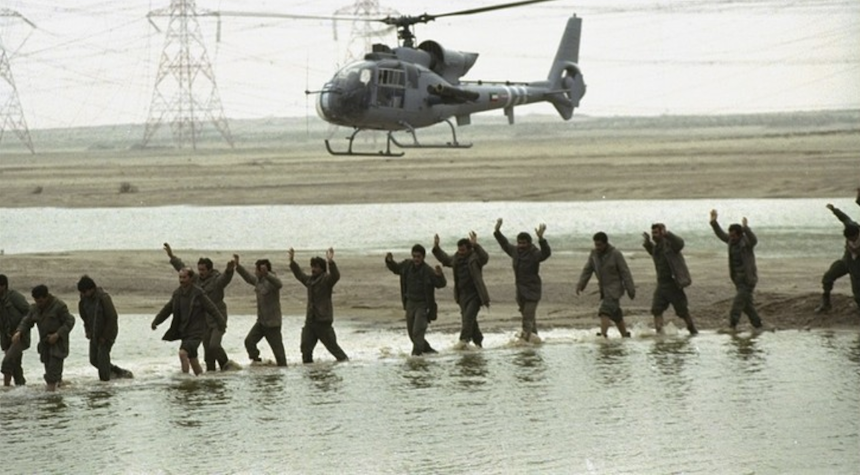
FILE – In this Monday, 25 February 1991 file photo, an Iraqi prisoner is herded by a Kuwaiti helicopter, with arms raised in the air, through a stream, in southeast Kuwait, during Operation Desert Storm.
It’s not like that.
Karl P. Mueller, senior political scientist and co-author of the report and Karl P. Mueller’s Newsweek interview said that any NATO response to an assault on Moscow “depends on what you think it represents”.
He said: “If you believe that the Russians are panicking or feeling desperate, then you should treat them differently from if you assume they’re acting for good military reasons and they believe this is the best way to win the battle.”
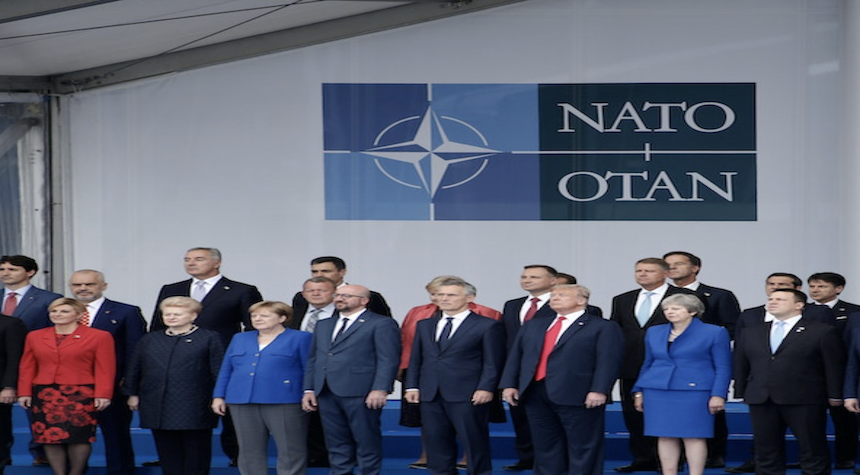
The summit in Vilnius demonstrates that NATO has entered a new phase with its defense strategy. Finland joined and Sweden’s application for membership was stalled.
Mueller stated that there would be “a lot” of discussion on what commitments the individual nations will make. He also said, “There will probably be a great deal of coordination to ensure these are coordinated.”
NATO’s position against the Soviet Union during the Cold War was largely defensive. War plans were designed to stop a Soviet invasion in Western Europe, without any thought for a Napoleonic-style attack on Moscow. The Ukrainians are fighting this war to prevent Russian forces from taking over their country.
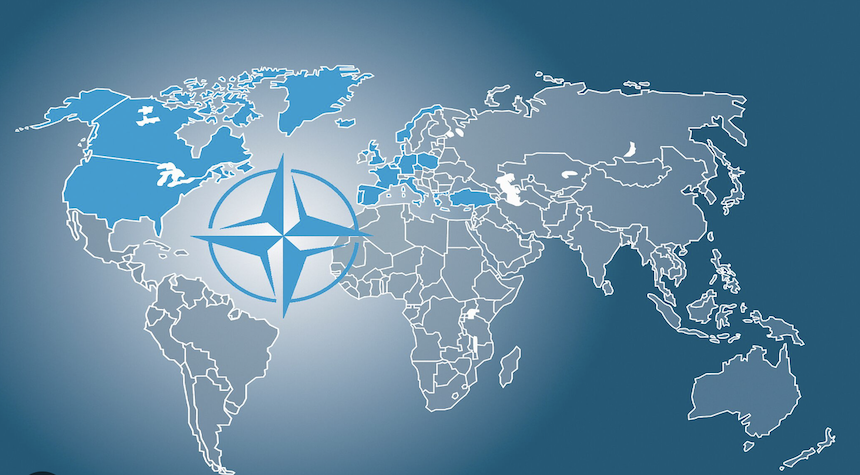
There are problems with a NATO campaign against Russia.
Look at the last sentence: “There will be much discussion about the commitments that individual nations will make and who is going to contribute to what …”. I can tell what the rest of NATO thinks about when they say “individual countries,” they are referring to the United States. When they ask “who is going to contribute forces”, they are referring to the United States. We are not prepared to do this. We’re not ready for war with Russia. And that’s exactly what it would mean: U.S. soldiers on the ground fighting Russian troops. This is the stuff of which world wars are made. The Army, Navy, and Air Force are not what they were in Desert Storm. The Army – my Army as it was – no longer appears to have its primary mission to “…close to and destroy the enemy through the fire, maneuver, and shock effect. Now, the DoD has… other priorities. We can’t even afford to wage another war forever, not with the incompetent and feckless leadership we currently have.
The issue is not readiness. Here, the question is: What is the compelling interest of the United States? As it stands, we’re depleting our ammo and equipment stocks to supply Ukraine. Is it worth the deployment of U.S. forces to Ukraine? Should we let Europe fix its own problems for the first since 1917?
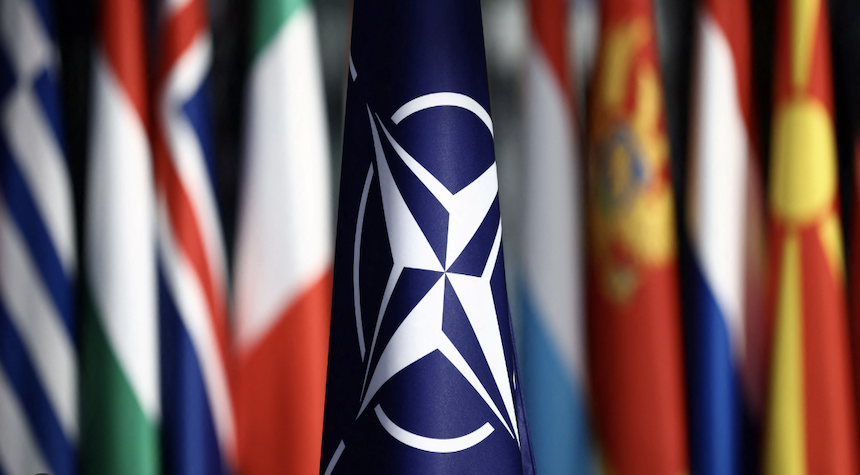
Has NATO lost its relevance?
I don’t believe anyone in NATO wants NATO to fight Russia. Putin doesn’t want to fight NATO either. There’s no way anyone can win. There are many ways that everyone can lose. Putin has already prepared one of these ways.
Ukraine is not currently a NATO nation and cannot join NATO due to the ongoing conflict. NATO’s involvement is only justified if Russia invades a NATO nation, such as Poland. Given the turmoil in Ukraine, it’s unlikely that Russia will leapfrog over to Poland anytime soon. NATO should be worried, even if the U.S. will spend most of the money and blood (what’s new?). But the smart move is to be on the defensive, just as NATO was during the Cold War. In the unlikely event that Russia decides something truly outrageous, NATO should only keep a close eye on Ukraine’s borders with NATO countries Poland, Slovakia Hungary, and Romania. I think they won’t.

